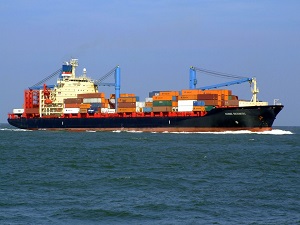Essay Sample: What Is Embargo?

Good trade relationships with all nations, ability to buy and sell products not just within domestic territory, but to other countries as well is pivotal to the successful and prosperous economy in the country. But what if such abilities become limited, or, what is worse, banned one day? Moreover, such sanctions can be placed legally and doing so is a prerogative of every nation. This is when embargo is set.
Embargo is a regulation adopted by the government that restrains the commerce or any trading exchange process with a stated country. It influences the economy of the affected country in a disrupting way and leads to negative consequences. Such policy decision may be adapted due to hostile political relations or economic circumstances that appeared between the two or more countries.
Imposing sanctions and embargos is made so that to change the behavior of the targeted country in a better way that will lead to better relationships and improve the economic and political situation in the future. Putting the embargo makes the targeted country feel isolated and it causes a lot of financial and economic issues.
All embargo sanctions are viewed as targeted ones. Bans can be placed either on countries, groups, organizations, government institutions or specific individuals. Embargo measures can be of a different kind. Some embargos are aimed at security and order preservation, for example ban on arms import and export in order to prevent terrorist attacks. Sanctions can be also put on specific industrial field, like a ban on oil stock or other related products.
Other bans and sanctions may be applied according to specific circumstances. The most common ones are embargos on ammunition, weapons or military supplying equipment. Another frequent one is the embargo on terrorist groups or anyone associated or involved with those groups, their entry to the country is forbidden and their bank accounts in that country may be frozen. It is often put during mass terrorist attacks, security threat times or riots. Named individuals, mostly politicians can be also banned to enter some countries. It can be also forbidden to travel to a targeted country for specified period of time or even indefinitely. it is known as a travel embargo.
Former trade embargoes were put in the Federal Republic of Yugoslavia, Vietnam, the Republic of Macedonia, Libya, India, Mali, Pakistan, Serbia, Georgia and Italy. Some of sanctions were adopted because of mass killings of rebels during the riots, some to restrict nuclear exports, some to prevent the import of agricultural products, wine, mineral water.
There are some countries that are under the embargo for the time being, such as arms embargo in China by EU; Sudan by the US; financial operations, shipping, missile and military export embargo in Iran by US; luxury goods and arms in North Korea by EU; consumer goods in Turkish Republic of Northern Cyprus by UN; money, consumer goods and arms in Cuba by the USA; shipment of animals in Japan after serious earthquake, live cattle export in Indonesia by Australia; Gaza Strip by Israel; oil and arms imports in Syria by US.
To sum up, the embargo process is conducted for sanitary reasons. However, the consequences may be devastating and non compliance with the required sanctions is considered to be a criminal offence and may lead to more destructive relationships.
References:
- Shambaugh, G. (2016). embargo | international law. [online] Encyclopedia Britannica. Available at: http://www.britannica.com/topic/embargo-international-law [Accessed 11 Jan. 2016].
- (2015). Economic sanctions. [online] Available at: https://en.wikipedia.org/wiki/Economic_sanctions [Accessed 21 Nov. 2015].
- Elmerraji, J. (2010). Countries Sanctioned By The U.S. – And Why. [online] Investopedia. Available at: http://www.investopedia.com/financial-edge/0410/countries-sanctioned-by-the-u.s.—and-why.aspx [Accessed 21 Nov. 2015].
- stanford.edu. (2015). Export Controlled or Embargoed Countries, Entities and Persons | DoResearch. [online] Available at: https://doresearch.stanford.edu/research-scholarship/export-controls/export-controlled-or-embargoed-countries-entities-and-persons [Accessed 21 Nov. 2015].
- org. (2015). The Adverse Consequences of Economic Sanctions. [online] Available at: https://www.globalpolicy.org/global-taxes/42501-the-adverse-consequences-of-economic-sanctions.html?hc_location=ufi [Accessed 21 Nov. 2015].
- GIUMELLI, F. (2015). Understanding United Nations targeted sanctions: an empirical analysis. International Affairs, 91(6), pp.1351-1368.
- Booman, M. (2014). The Effectiveness and Ethics of Economic Sanctions. [online] Seven Pillars Institute. Available at: http://sevenpillarsinstitute.org/essays/effectiveness-and-ethics-of-economic-sanctions [Accessed 7 May 2016].